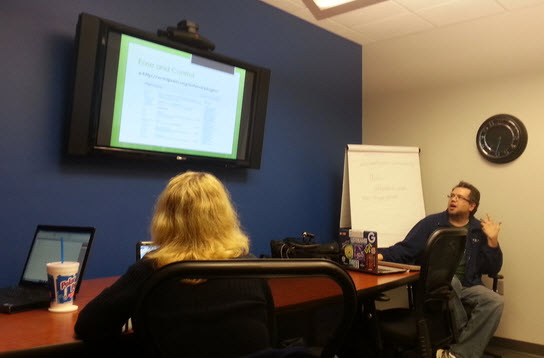Jen Mylo has published some interesting statistics on the WordPress Community blog that show WordCamps still have a long way to go when it comes to women speaking at these events. Between 2012 and 2013, there was only a slight increase in the amount of women speaking at WordCamps. Possibly compounding the issue is that most of the events with dismal numbers had a large number of “circuit” speakers who were predominantly male. Circuit speakers are individuals who speak at multiple WordCamps during the year.
It’s Difficult Talking About This Subject As A Male
As a male, I feel like I have no business talking about matters such as these. I love the fact that the WordPress project and WordCamps in general encourage diversity. For example, WordCamp Miami clearly states on their speaker submission page their desire for a diversified group of presenters: “Our general policy is that we don’t consider the race, sex, religion, or any other factor of the speaker to play a part in our selection process.” If organizers are pressured to start selecting women speakers based on the fact that they are women, it would invalidate policies like the one referenced above.
Yay Or Ney To WordCamp Circuit Speakers?

Going back to the topic of circuit speakers which is very touchy, I think it’s important to remember what WordCamps are truly about. In their simplest form, they are WordPress meetups but on a bigger scale. WordCamps are highly encouraged to be made up of mostly local attendees. Most of these events have a set of dedicated volunteers that record sessions that are uploaded to WordPress.tv after the event. Thanks to WordPress.tv, one question I have is whether or not individuals should be discouraged from traveling to multiple WordCamps to give the same presentation? If that road is traveled, where does it lead? WordCamp Central placing limits on the amount of WordCamps a presenter can travel to and give the same presentation?
Starting With The Local WordPress Meetup

Since WordCamps are all about local first, that’s where any initiative encouraging diversity would have the largest and immediate impact. The local meetups I have attended have had almost a 50/50 mix of males to females. The women I’ve had a pleasure to help are usually brand new to WordPress and its ecosystem. I do my part by helping them out as best I can and then encourage them to be part of the larger community. If they decide to remain quiet and not take an active role in the WordPress community, what am I supposed to do? Push them into it?
New Study Shows Promising Results
If you’re a male WordCamp organizer, consider having one or more women be part of the conference organization group. A recent post by The Atlantic highlights a study that shows having just one woman on the organizing committee for a conference greatly increases the likelihood of women appearing at the front of the room.
More Women Everywhere!
I’m all for more women in tech, women in WordPress, women everywhere. I don’t like how some of them have gone about raising awareness of the issue because it seems more like a war between males and females. But WordPress has done a great job enabling people of any race, religion, etc to contribute to the project. Without forcing diversity on WordCamp organizers, what are they supposed to do if no women submit speaker applications? What if the speaker pool they have to select from are all white males?
The initiatives that Jen Mylo is pioneering with other members of the WordPress community are great. I just hope they remain as initiatives and don’t end up becoming more WordCamp Central requirements that organizers HAVE to follow. WordCamp organizers have enough on their shoulders as it is.
As a person who I suppose qualifies as both a female and a “circuit speaker” as well as a WordCamp organizer, I think that there’s always a few things to think about. It’s awesome as an organizer to be able to bring in some “big name” or well-traveled speakers from other cities into your WordCamp so that your local community can hear from some people they don’t usually get to see at meetups. It’s also awesome to hear from a wide variety of voices (both local and non-local) from all sorts of different backgrounds (not just gender), but difficult to do if the organizers don’t know where to look. Always looking for help on that front! As far as wordpress.tv goes, it’s a fine resource and all, but I think it’s way more valuable to have a speaker there in person to be able to meet with, ask questions of, etc., so I am always going to be in favor of a speaker traveling and giving the same talk at multiple camps so that we can meet each other IRL more often. :)